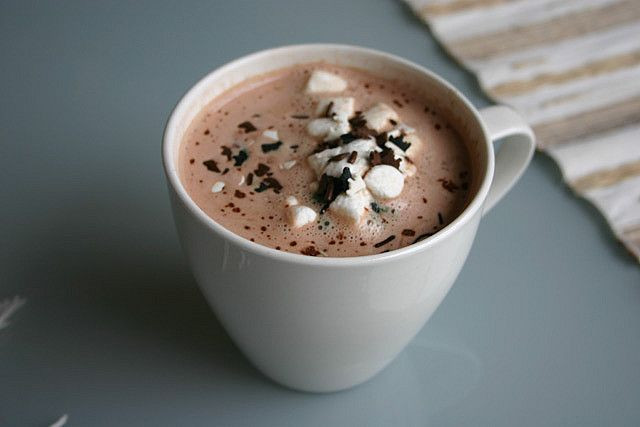Hot Chocolate Improves Mental Sharpness In The Elderly: A Delicious Way To Fight Dementia?

Two cups of hot chocolate a day can improve mental performance in the elderly, according to new research from Harvard University.
Some varieties of hot cocoa are packed full of flavanol, a natural antioxidant and blood-flow boosting compound. The goal of the study was to see if regular consumption of the beverage could improve cerebral blood flow in the elderly and potentially enhance cognitive function.
Maintaining normal levels of blood flow, and consequently oxygen and glucose, in the brain is critical for cognition. Although the brain is only two percent of body mass, it accounts for more than 20 percent of total body oxygen and energy consumption.
The researchers invited 60 people, with an average age of 73, to drinks two cups of hot cocoa everyday for a month. None of the subjects had dementia, although 18 subjects had impaired blood flow at the beginning of the study, as measured by ultrasounds of the middle cerebral artery, a major life channel in the brain.
This impaired subgroup witnessed an eight-percent elevation in blood flow by drinking hot chocolate, which was paralleled by a faster working memory in these subjects, as judged by three questionnaires that measured cognitive prowess.
Subjects with regular blood flow did not experience a hot chocolate boost in mental speed.
"We're learning more about blood flow in the brain and its effect on thinking skills," said study author Dr. Farzaneh Sorond, of Harvard Medical School in Boston and a member of the American Academy of Neurology. "As different areas of the brain need more energy to complete their tasks, they also need greater blood flow. This relationship, called neurovascular coupling, may play an important role in diseases such as Alzheimer's."
Although flavanols have been implicated in hot cocoa's ability to fight dementia in past studies, the researchers did not observe a difference between those who drank flavanol-rich chocolate and people who had bevarages with low amounts of flavanol.
This could mean that other ingredients in hot cocoa are beneficial or that low amounts of flavanol are enough to be beneficial.
"More work is needed to prove a link between cocoa, blood flow problems and cognitive decline," said Dr. Paul Rosenberg of Johns Hopkins School of Medicine in Baltimore, who wrote an editorial accompanying the study. "But this is an important first step that could guide future studies."
Sources: Sorond FA, Hurwitz S, Salat DH, Greve DN, Fisher NDL. Neurovascular coupling, cerebral white matter integrity, and response to cocoa in older people. Neurology. 2013.
Rosenberg PB, Tan CO. Cocoa, neurovascular coupling, and neurodegeneration. Neurology. 2013.
Published by Medicaldaily.com



























